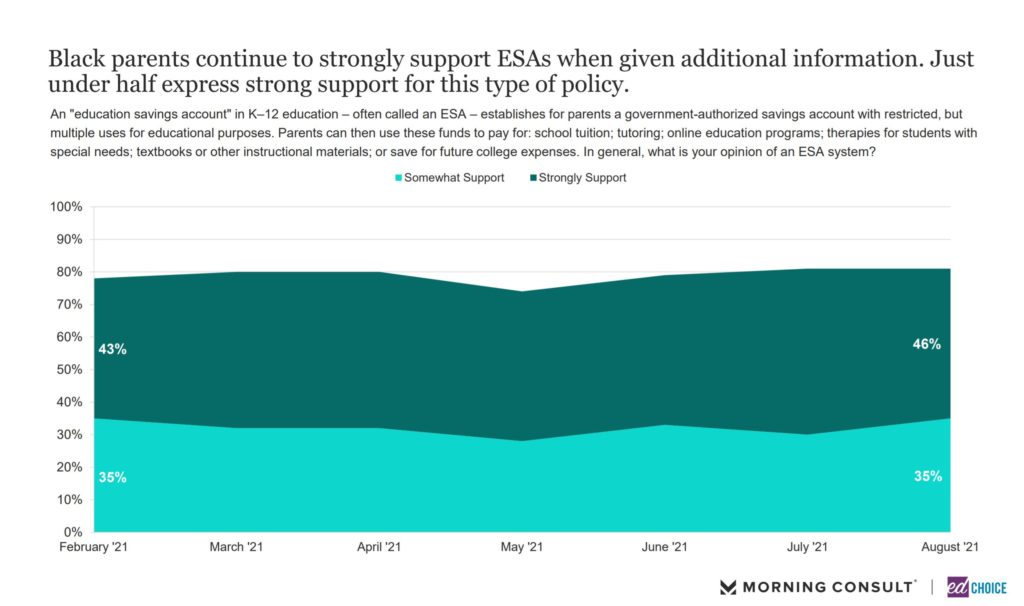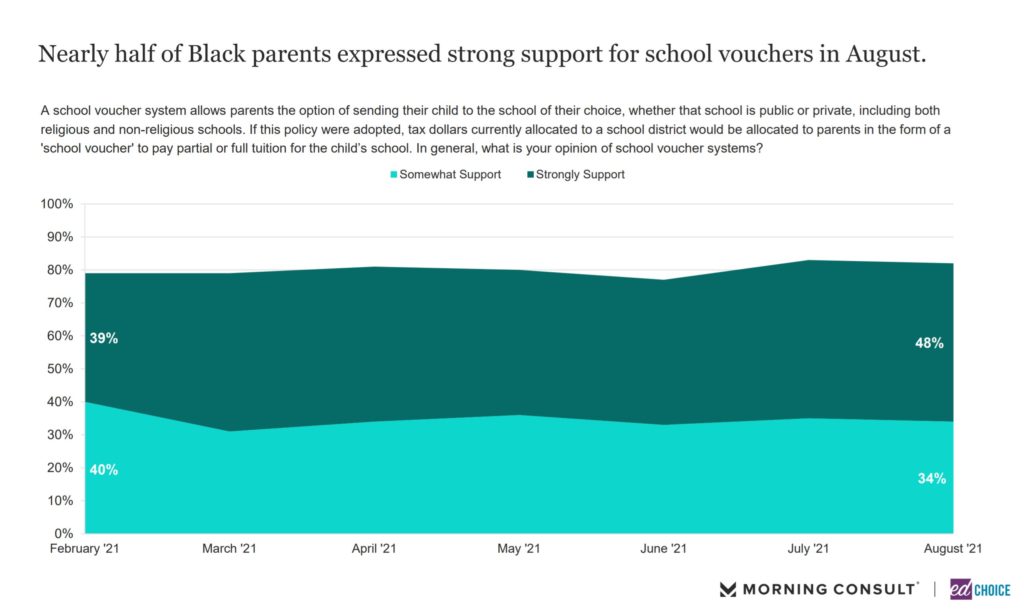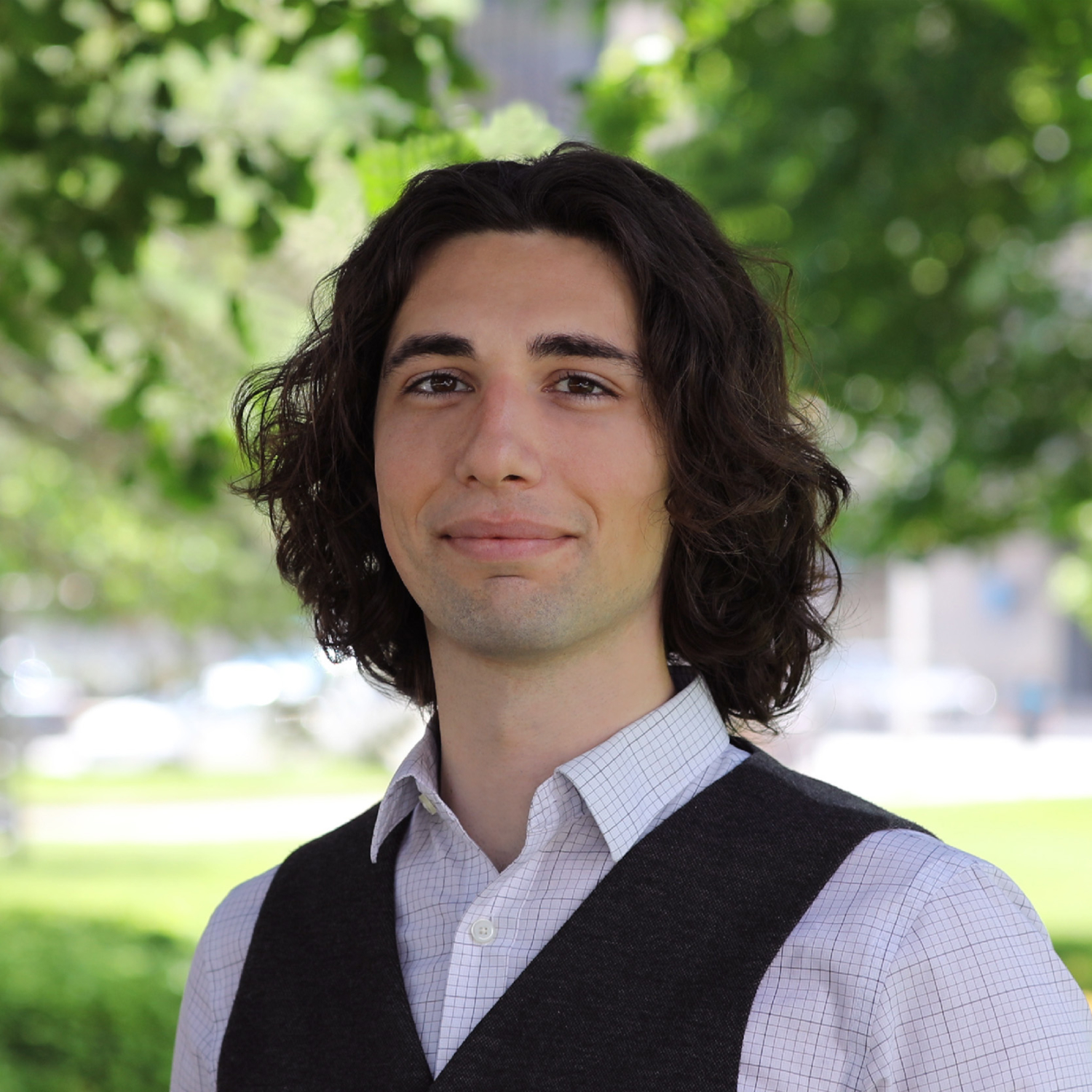Public Opinion Tracker Deep Dive: Black K-12 Parent Perspectives (August 2021)
During the pandemic, several news outlets have covered Black families’ educational experiences, frequently highlighting their frustrations with their local school systems. As we’ve worked on our monthly polling of the public and parents over the last year and half, we’ve noticed Black parents consistently indicate more favorability toward homeschooling and other schooling modes. With the uncertainty and renewed COVID-19 concerns of the new school year, we saw them indicate greater preference for those options once again in August.
Every month we survey a nationally representative sample of American adults aged 18 and over. This week we posted our full brief based on our polling of Black parents between August 7 and September 7. During that period, we obtained completed surveys from 475 Black parents of school-aged children, which includes an oversampling of 300 Black parents. We also obtained responses from a nationally representative sample of 1,273 K–12 school parents, which includes an oversampling of 700 school parents.
Here are some things we learned from our most recent wave of polling:
1. Black parents are more favorable to mask mandates than white parents but similarly favorable toward vaccine requirements. About 60 percent of Black parents thought masks should be required for most groups in educational environments, compared to less than 45 percent of white parents. About 37 percent of Black parents thought the same about COVID-19 vaccines, only slightly higher than white parents. Like white parents, Black parents were less likely to think vaccines should be required for children, and they were less likely to say children ages 5-11 should be required to wear masks at school.
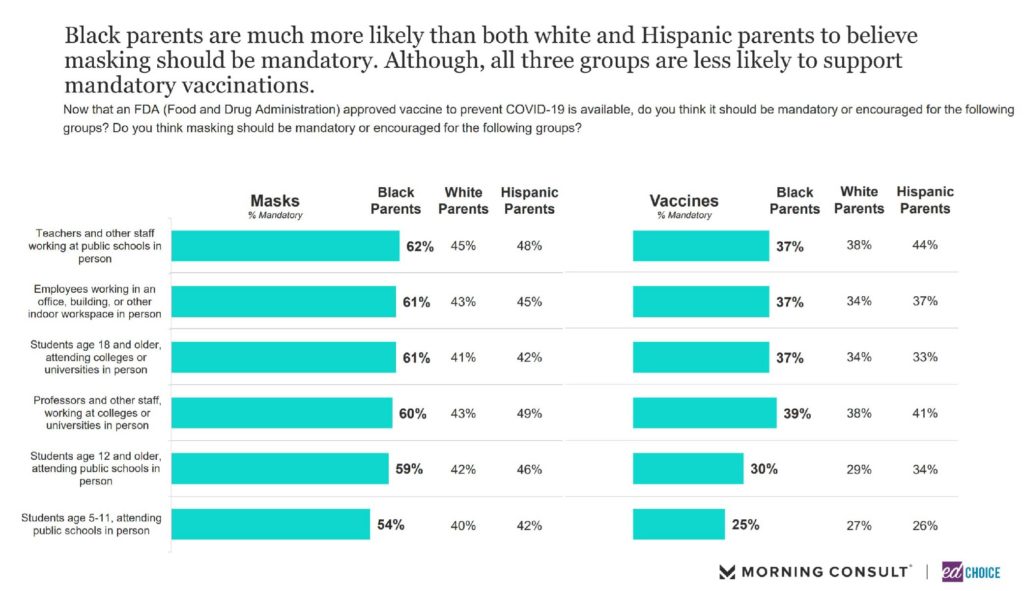
Black parents are more likely to say state or federal agencies should make public school masking policies, while white parents are more likely to prefer local agencies.
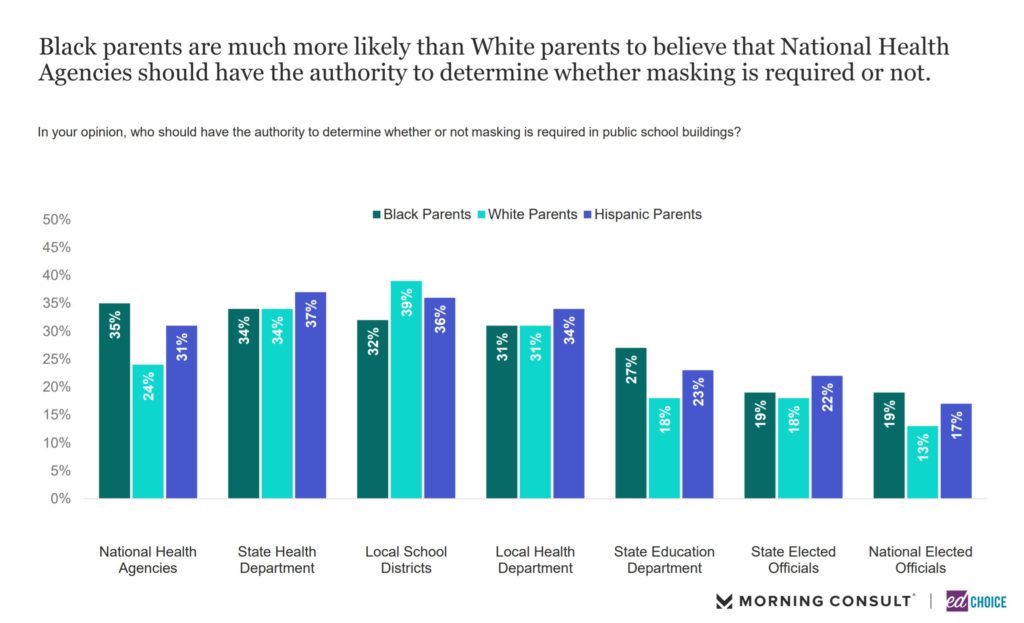
2. Interest in vaccination was down in August. The share of Black parents indicating they have or plan to receive the COVID-19 vaccine declined four percentage points, dropping to 60 percent. Affirmative responses for vaccinating their children also declined, from 50 percent to 44 percent. These ratios are similar to white parents’ responses. While there is a four percent gap between Black parents and white parents in vaccination rates, they were equally likely to say they had children currently vaccinated.
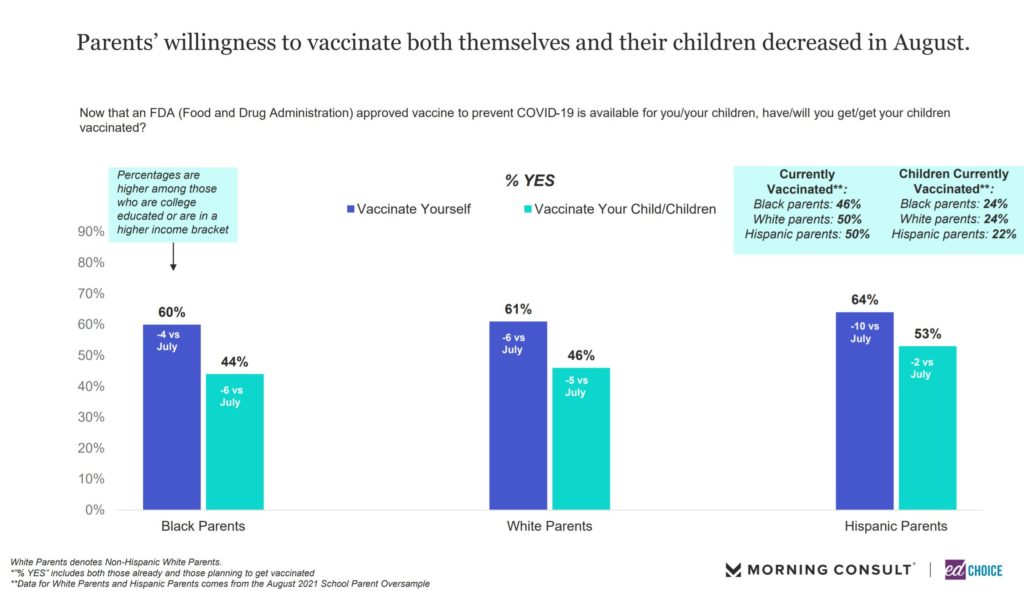
3. Comfort with in-person schooling declined. The percentage of Black parents at least somewhat comfortable with their children returning to school declined from 58 percent to 51 percent, roughly returning to levels seen in May. Comfort with in-person schooling remains lower than that of white parents. But the gap between Black and white parents narrowed to 10 points in our latest survey wave. That disparity decreased largely because white parents’ comfort with returning to school declined 15 percentage points.
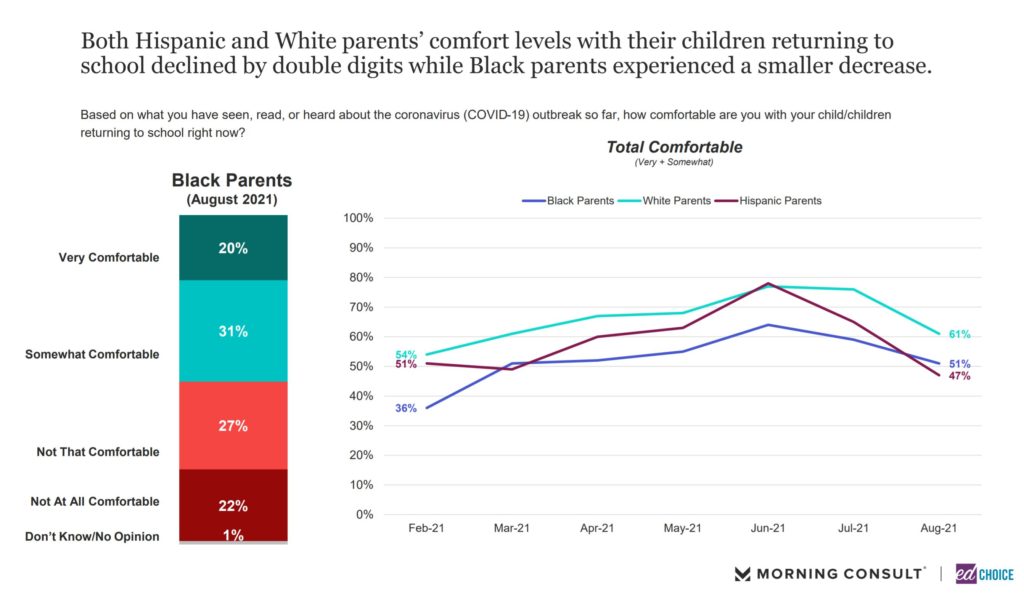
4. Interest in some form of hybrid schooling has increased since July. When asked what their ideal school week looks like, 20 percent of Black parents said they most preferred schooling to take place outside the home all five days, down 7 percentage points from July. Interest in schooling completely at home increased 4 percentage points. Over half of Black parents preferred two to four school days to take place at home each week, compared to 36 percent of white parents.
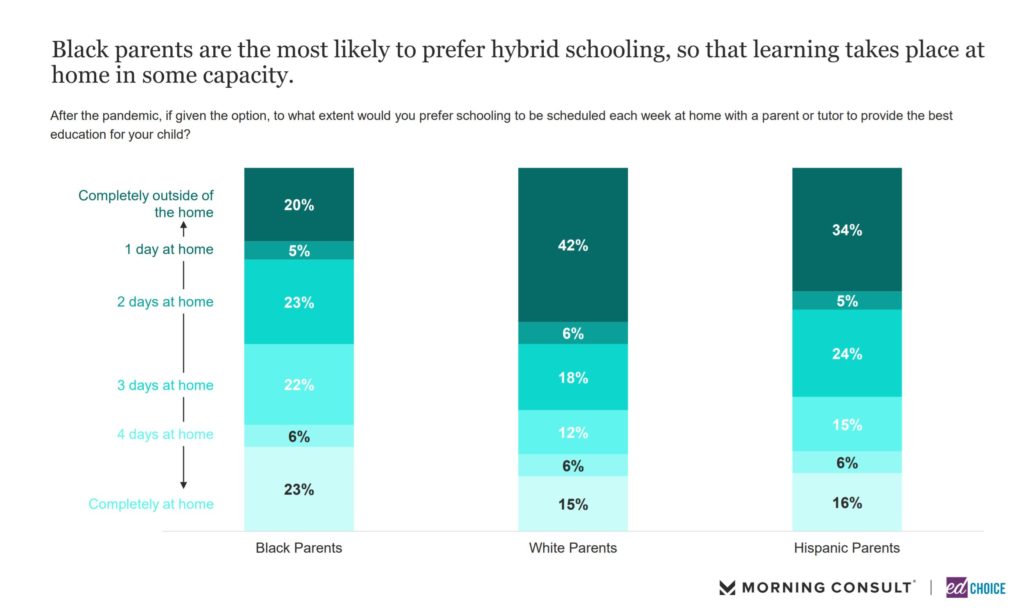
5. Interest in learning pods jumped significantly. In our latest survey, 46 percent of Black parents said their family was participating in or looking to join a learning pod, a nine-point increase since July. In comparison, 28 percent of white parents signaled interest in pods.
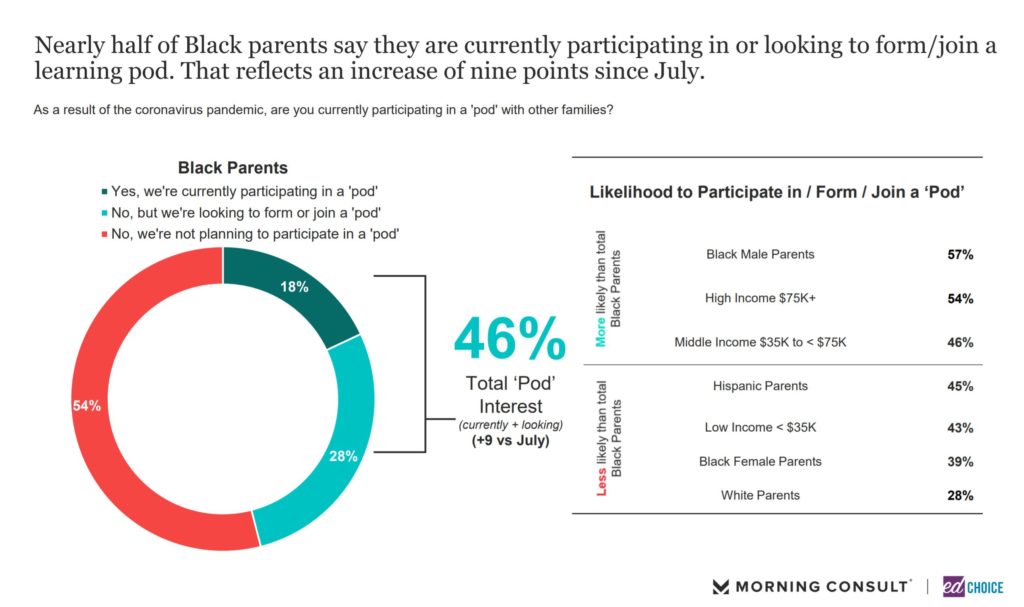
6. About four out of five Black parents support each of three major school choice policies—education savings accounts (ESAs), school vouchers, and public charter schools. We have seen slight increases in school choice favorability since June. Eighty-one percent of Black parents support ESAs, 82 percent support school vouchers, and 79 percent support charter schools.
